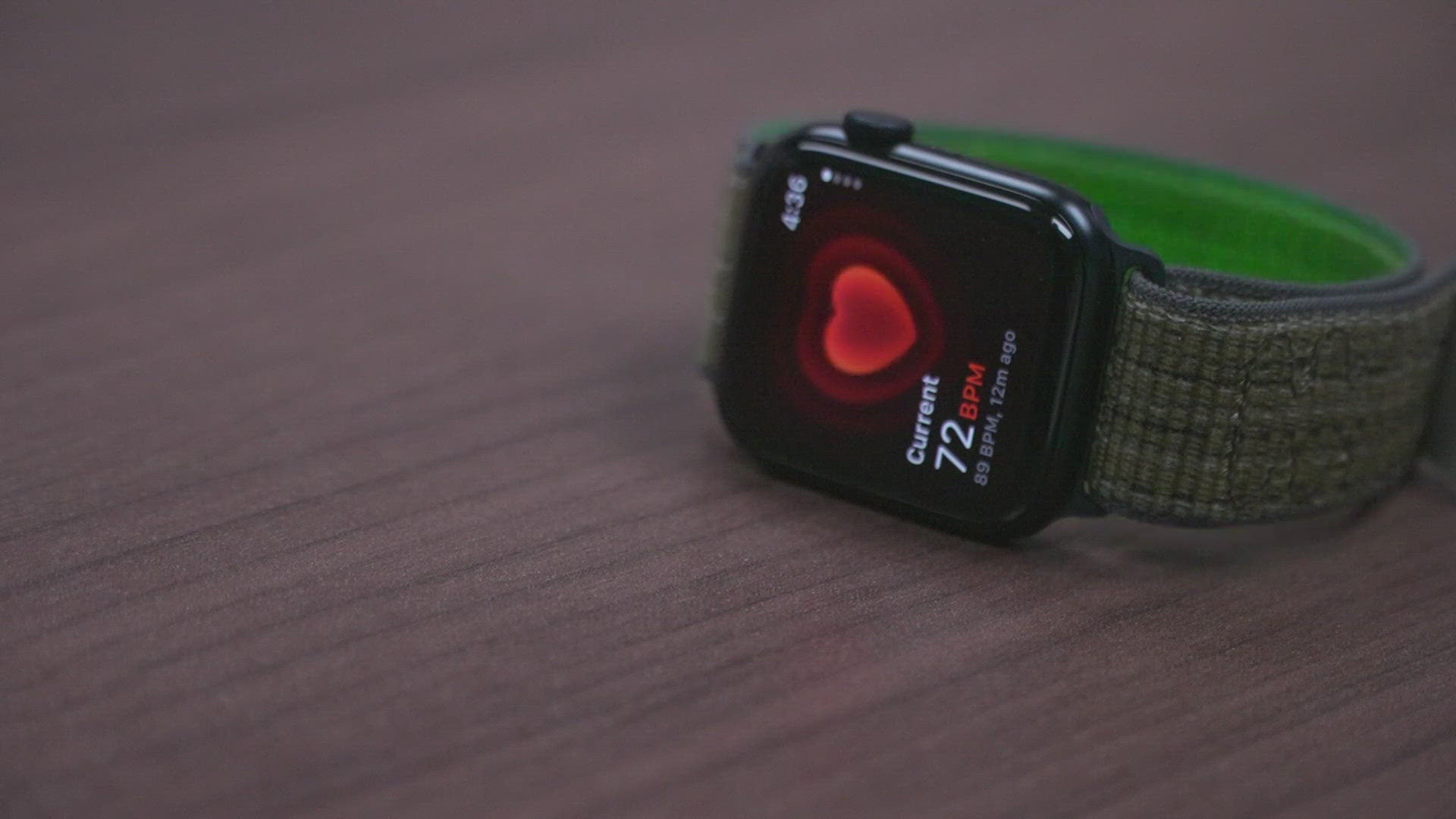DENVER — Many people love their smart watches. People use them daily to check texts, track steps and stay connected with friends. Now, some people are using their Apple Watch to diagnose and monitor health conditions.
At his home on Colorado's Western Slope, there's one item you'll never find Dave Kaufmann without: his Apple Watch.
"It's on all the time except for charging it," Kaufmann said.
The smart device has become a critical piece of managing his atrial fibrillation (AFib), an abnormal heart rhythm.
But figuring out the problem was tough. His doctors ran tests and heart rate monitors that came back normal. Then, a longer-term heart rate monitor spotted the problem: atrial flutter and AFib.
That sent him to Dr. Sri Sundaram in Denver.
"Before my doctor's appointment with Dr. Sundaram, my oldest son said, 'Well dad, why don't you get an Apple Watch?' And my comment was, 'The doctor doesn't want me to do that.' And when I met with Dr. Sundaram, he was very encouraging, saying he was involved with the study. So that afternoon, I went out and got an Apple Watch," Kaufmann said.
Sundaram is a cardiac electrophysiologist with South Denver Cardiology & AdventHealth Porter and the director of electrophysiology for the Rocky Mountain Region of AdventHealth. Sundaram sees patients like Kaufmann dealing with AFib all the time.
"As much as one out of four people in the United States will develop atrial fibrillation in their lifetime – it's that common," Sundaram said.
AFib is common, but often serious.
"It can range from barely symptomatic to actually, the biggest problem it can cause is stroke. In fact, it's the most common cause of stroke in the United States. And the strokes that you get from it tend to be pretty darn big strokes," Sundaram said.
There's a lot that can be done to treat it, but first, they have to catch it.
"[If] you don't have a diagnosis, you don't know what the treatment is," Sundaram said.
The tough task has been made simple for many through their Apple Watch.
"Apple Watches came along and they're actually quite brilliant," Sundaram said. "They were actually FDA approved a couple of years ago and I was initially pretty skeptical about it, but then I looked at the data. It's about 93% sensitive and close to 100% specific which means it's right probably close to 95% of the time when it tells you that it's atrial fibrillation."
The data they're collecting is critical. For patients with diagnosed AFib, it can allow patients to record their symptoms and send reports to doctors. The report's data can be used to determine the severity and frequency of a patient's condition.
And the devices are sending patients in for help far sooner.
"Just last week, I think I saw five patients that were first diagnosed with atrial fibrillation based on the Apple Watch alone," Sundaram said.
That early diagnosis, he said, can be lifesaving.
"There’s a lot of data that’s shown the sooner you’re diagnosed and within a year of diagnosis, the treatments are much more effective. I mean, it makes sense, AFib hasn’t had a chance to spread to the rest of your heart," Sundaram said. "So if we can diagnosis it sooner, I can treat it sooner and we get a higher rate of success."
For patients like Kaufmann, the smart watch is a lifeline, helping manage his AFib while 200 miles away from his doctor in Fruita, Colorado.
“Absolutely. Otherwise, they could say, 'Well you’re doing fine, what’s wrong?' But they see the reports and furthermore, I can actually email it to them from Fruita, which is near the Utah border. So that’s ideal," Kaufmann said. "It’s nice to know that I can monitor it without having to go into an office or if I feel uncomfortable, I can run a test and see whether it’s a problem or not.”
That peace of mind is helping put his heart at ease.
"Yes, it sure did," Kaufmann said.
AdventHealth Porter is taking part in an international study called REACT-AF, looking at Apple Watches and AFib. In the study, patients using their Apple Watches will take blood thinners for a short amount of time and only when they're in a prolonged episode of AFib.
Sundaram said by reducing the need for regular blood thinners to manage AFib, this could have a massive impact for patients.
“The idea is now that if we have literally a thing you can buy that doesn’t need a doctor’s prescription and you know it can diagnosis AFIB and not only diagnosis it, but tell you when to take your blood thinner – this is game changing in how we treat patients," he said.
So far, AdventHealth has around 20 patients enrolled in REACT-AF locally. Sundaram estimates the study will continue for around five years.

